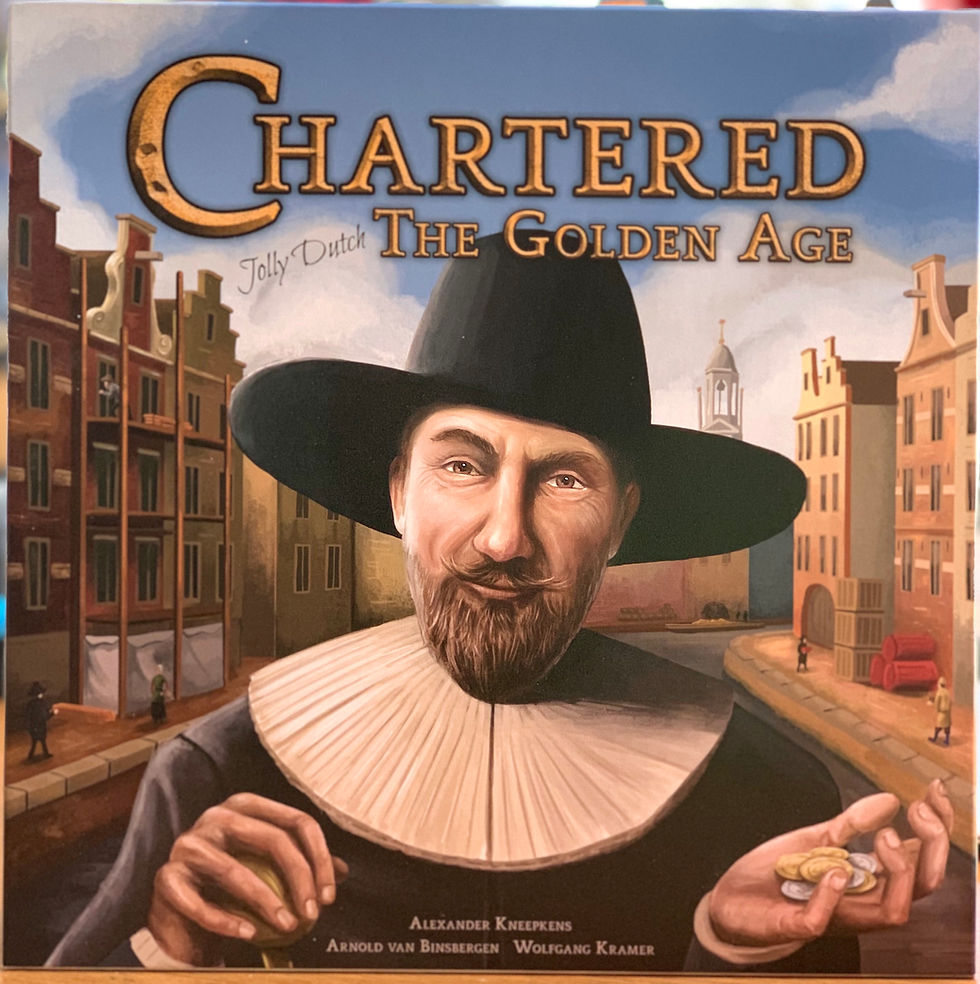Chartered: The Golden Age is a card-driven stocks & shares board game designed in and set in the Netherlands, by Alexander Kneepkens, Arnold van Binsbergen and Wolfgang Kramer. It takes 2-6 players and is published by Jolly Dutch Productions.

Similarly to the classic game Acquire (Avalon Hill/Schmidt Spiele), players are seeking to build up chartered enterprises and amass the most wealth by making shrewd investments. Cards determine which plots players can build on, and can come into players’ hands face down or from a face-up display, so there’s a good mix of planning and reacting to random draws. You can choose any enterprises to invest in, whether you started them or not, but the bigger they get the more expensive it becomes to buy shares in them. There is an exciting tension in deciding when to buy shares, which to buy, when to build up enterprises and when (and where) to start new ones.
Every enterprise is made up of multiple warehouse blocks, with a variety of sculpts, all stacking and giving the game a strong table presence. Artwork and components are simple but functional and attractive (the art is by Henkjan Hoogendoorn). Though the player aids are not as clear as they could be, the rules are very straightforward and easy to pick up, making it a good gateway game towards deeper stocks & shares games like Mombasa (Eggertspiele/Pegasus Spiele). Despite its simplicity, there is depth and variability. The luck element is low, but for people who like a bit more randomness there is an event deck that can optionally be added in to shake things up from time to time.
The game tends to remain close and tense right to the end, but if one player is able to have the majority share in a mega-company, they may well be an obvious winner. Still, Chartered: The Golden Age plays swiftly and packs a lot of tough decisions into its 60-90 minutes playing time. If you’ve never played Acquire, Mombasa or Imperial 2030 (PD Verlag), you’ll find it feels different to most Euro games and presents very different challenges in trying to master the strategy. There’s a strong chance you’ll enjoy trying though!
(Review by Matt Young)
